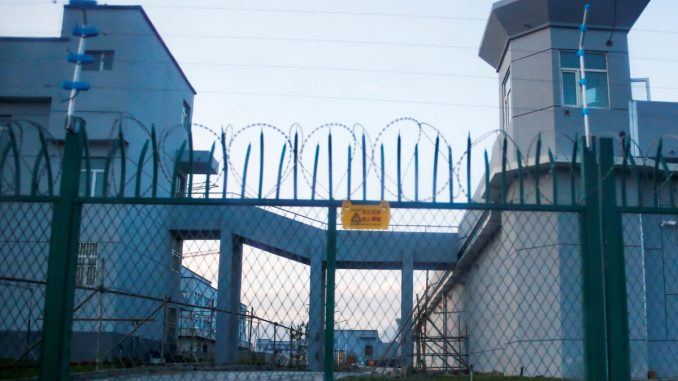
Commentary
Since 2014, according to a new report released by the Uyghur Human Rights Project (UHRP) and Justice for All, China’s authorities have arrested at least 1,046 Muslim imams from its Xinjiang (East Turkistan) region. The arrests, according to an email from the UHRP, are “attempts by the Chinese government to cut off the transmission of religious knowledge across generations.”
UHRP Executive Director Omer Kanat alleged that “the wholesale round-up of imams exposes the Chinese government’s intention: to destroy our faith and traditions, once and for all. Uyghur and other Turkic imams are the custodians of religious scholarship and teaching. Eliminating religious teachers is a weapon for eliminating Islam from our homeland.”
Of the 1,046 cases, 428 imams were sent to formal prisons, and 202 were detained in concentration camps, including “reeducation” detention facilities. Eighteen died while in detention, and of those imprisoned, 96 percent were sentenced to five or more years, and 25 percent to 20 years or more, often with unclear charges. Where charges are included, they can be for “teaching others to pray,” “refusing to hand in Quran book to be burned,” “studying for six months in Egypt,” and a life sentence for “spreading the faith and for organizing people.”
According to the UHRP, the 1,046 recorded cases “are not comprehensive, given extreme secrecy and lack of transparency in the Uyghur Region, and very likely represent a small fraction of the total number of religious figures detained.”
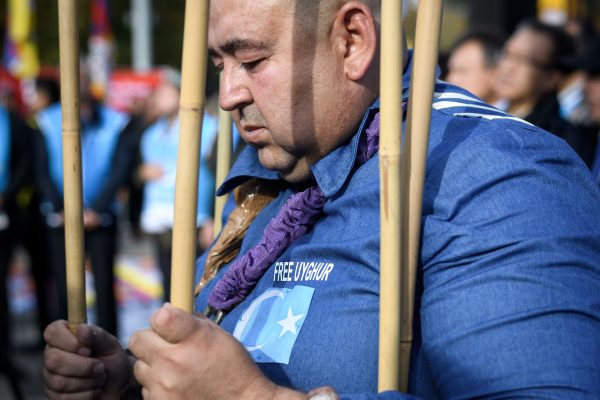
The 1,046 detentions did not necessarily include imams who fled the country to become religious refugees. Imams tended to flee China when government controls on their activities “reached the point where they felt that they could no longer play a positive role for their congregation and were at increasing risk of detention themselves,” according to the UHRP email.
Peter Irwin, the report’s author, said that “China’s persecution of imams stretches back decades, but it wasn’t until 2016 that the screws were tightened even further and thousands were likely arrested and sentenced.”
The Chinese Communist Party (CCP) has heavily repressed religion since it took power in 1949, including against Muslims, Tibetan Buddhists, Christians, and Falun Gong adherents. The Chinese regime’s practice of “reeducation” most recently originated in measures taken against the Falun Gong religion. According to China expert Adrian Zenz, “In the 1950s, the state established the practices of ‘reform through labor’ (劳动改造) and ‘re-education through labor’ (劳动教养). Later, in the early 2000s, the government initiated ‘transformation through education’ (教育转化) classes for Falun Gong followers.”
Tough social control measures that were pioneered in Tibet, moved to Xinjiang in 2016. According to Zenz, “In August 2016, Chen Quanguo became Xinjiang’s new Party Secretary. He came into the job from a position as Party Secretary of Tibet, where he pacified the restive region through a combination of intense securitization and pervasive social control mechanisms.”
Freedom House found that “the Chinese authorities impose severe constraints on the religious practice of Tibetan Buddhists, particularly devotion to the exiled Dalai Lama, a core tenet for many believers.” There is a Chinese government presence that discourages religion in Tibet, including intrusions into monasteries, routine “reeducation” campaigns, pervasive surveillance, limits on travel, decreased communications, and regulations that discourage the practice of religion by university students and government employees. “Chinese security forces in Tibetan areas are quick to employ coercive measures to suppress perceived religious dissent, including the use of live ammunition against unarmed civilians,” according to Freedom House.
Parallels are found in Xinjiang. According to the UHRP, “In addition to the arbitrary detention of religious figures [in Xinjiang], authorities have prohibited the teaching of religion at all education levels; banned the use of traditional Islamic names like Muhammad and Medina for Uyghur children; banned long beards for Uyghur men and headscarves for women; instituted an ‘anti-halal’ campaign to prevent the labeling of food and other products this way; criminalized Hajj pilgrimage without government approval; and adopted legislation broadly defining quotidian religious practices as ‘extremist,’ which a group of UN independent experts urged to be repealed in its entirety.”
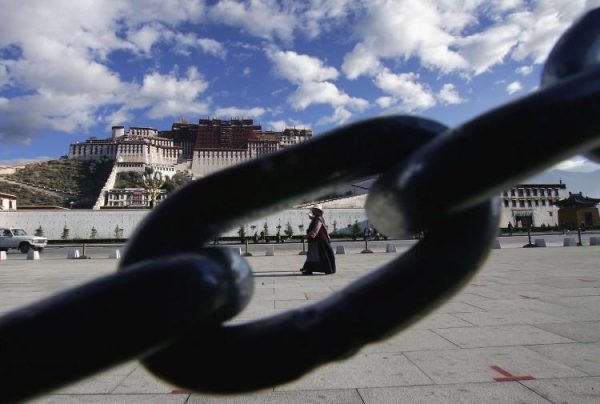
The UHRP compared the current campaign against Turkic Muslims to the “horrors of the Cultural Revolution as it was experienced in East Turkistan,” except today the CCP has greater access to “sophisticated technologies to ‘predict’ criminality and infiltrate even the most intimate social unit, the family home.”
Prior reports have detailed how the CCP sends Han cadres into the homes of Turkic Muslims in Xinjiang to live with them, share meals and large sleeping platforms, and ensure that they are no longer religious. Any sign of religion or dissent in the home can be cause to send the residents into “reeducation” camps. Uyghurs feel spied upon in their own homes, forced to eat pork and drink liquor, coerced into stopping religious observances, and giving up their daughters for marriage to Han males. Chinese authorities have gone so far as to advertise for Uyghur women to marry Han men.
China’s repressive approach to religion, fanned by an anti-religious belief found in Marxism, has been disastrous for the country. Not only has it been severely criticized by international human rights organizations, but it arguably contributes to corruption and a lack of civic engagement in the country. Conversely, religion and church attendance increases involvement in civil society in, for example, the United States and Canada.
The CCP has its reasons, of course. Religion is a threat to the continued control of the CCP in that religion frequently plays a role in the democratization of countries, and democratization in the case of China today would likely mean the end of the CCP as the country’s ruling party.
But it need not be so simple as religion versus communism. It would be in the CCP’s own interests to take a less severe approach to religion by building bridges with the religious, rather than outright banning them. The Catholic Church has, for example, shown how the religious can minister to the poorest parts of society. The religious tend to be a force for good in societies, as they promote an ethics and morality that can improve citizen behavior where the state and law cannot reach. China’s ubiquitous surveillance cameras cannot see everything. They cannot see into the soul.
If the CCP really wants what is good for society, it should trust religion as an equal partner in its attempts to reform China, and the world. Such humility and sense of partnership would be a big step back from the brink of war, as the world would recognize that China has started a true round of internal human rights reform.
As with any partnership, the CCP should expect to be peacefully changed by religion, as much as it does the changing. That mutually respectful societal evolution is the only way towards peaceful political change. The current CCP approach of trying to control religion from the top-down is doomed to fail. Even many Han Chinese, for example, are surreptitiously joining banned religions.
Some may claim that voluntary reform by the CCP is an impossible dream. But faced with the alternative of possible military conflict in the nuclear age, we must dream the impossible.
Anders Corr has a BA/MA in political science from Yale University (2001) and a Ph.D. in government from Harvard University (2008). He is a Principal at Corr Analytics Inc., Publisher of the Journal of Political Risk, and has conducted extensive research in North America, Europe, and Asia. He authored “The Concentration of Power” (forthcoming 2021) and “No Trespassing,” and edited “Great Powers, Grand Strategies.”
Views expressed in this article are the opinions of the author and do not necessarily reflect the views of The Epoch Times.



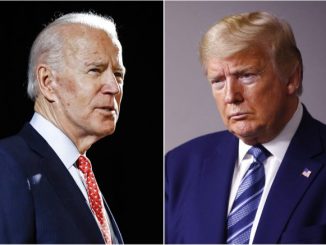
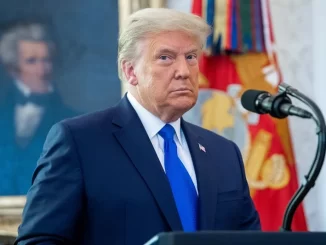
Be the first to comment